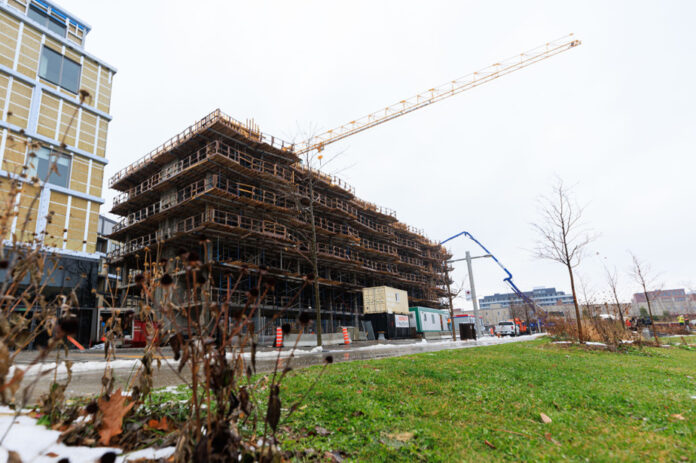At a time when the housing crisis is raging in Quebec, the Legault government is allocating 1.8 billion over five years to the construction of 8,000 new social and affordable housing units, including 500 housing units for people experiencing homelessness. The sums planned for 2024-2025 (210 million) will also be disbursed this year to begin the construction of housing as quickly as possible. The government can put its foot on the accelerator thanks to an agreement concluded with Ottawa, which allows it to receive 900 million in federal transfers. Quebec undertakes to invest the same amount. The new housing will be built as part of the Quebec Affordable Housing Program. Eric Girard said he expected these 8,000 homes to be built within five years.
Rather than sending checks, the Legault government is banking on an indexation of 5.08% of tax assistance (personal income tax system and social assistance benefits) to say that it is giving breathing space to Quebecers who suffer from inflation. This indexation has been automatic every year since 2002, by virtue of a law. This will result in the increase of several deductions and tax credits on January 1, 2024. For example, the maximum amount of the Family Allowance will increase from $2,782 to $2,923 and the solidarity tax credit for a person living alone will increase from $1162 to $1221. Indexation – which represents 2 billion per year – will correspond to an average amount of $282 per taxpayer in 2024.
To respond to the homelessness crisis affecting many cities in Quebec, the Legault government is injecting additional sums of 22 million per year for the construction of emergency shelters. Added to this are the 4.5 million already planned in the budget, for a total of 26.5 million per year until 2027-2028. Following the publication of the last count in September, Minister Lionel Carmant managed to release 15.5 million in new money to start accommodation projects before winter. His wish to see these sums become recurring was granted. Quebec is also increasing support for culturally adapted services for First Nations and social reintegration.
The Legault government is releasing one-off, targeted aid of $20.8 million for five organizations offering food aid (the network of Food Banks of Quebec, the Breakfast Club, La Tablée des Chefs, the OLO Foundation and La Cantine for all), another sector where demands are exploding. However, the network of Quebec Food Banks alone requested aid of 18 million in October. Managing director Martin Munger believes it’s a “boost” that will get the network through the holiday season. “We will have to talk to the government again quickly,” he warned on Tuesday.
The Legault government is disbursing new sums to support training in the construction and health and social services sectors, two areas particularly affected by the labor shortage. Quebec is injecting 261 million over two years for its “construction offensive” which aims to train between 4,000 and 5,000 workers, and 62 million to relaunch the accelerated training of beneficiary attendants, which was successful during the pandemic. Quebec adds 5.8 million to encourage psychology students to practice in the public network.
Quebec is paying cities additional sums of 292.1 million over five years, including 114.9 million starting this year, to help them adapt to climate change. This is partly about the financial impact of the “Declaration of Reciprocity” between the government and municipalities, the formula that replaces the fiscal pact. As La Presse revealed, some 500 million additional funds must be paid to cities for the climate transition. The difference will be part of measures announced “later” by the Minister of the Environment, Benoit Charette. The government is also disbursing 269 million to help communities that suffered from forest fires in the summer of 2023 (404.2 million over five years). As planned, it adds 265 million for public transportation.
Quebec is revising its economic growth forecasts downward for 2024. It expects real GDP to increase by 0.7% instead of 1.4%. “The persistence of inflation” and “the cumulative effect of interest rate increases” explain this deterioration, according to the Minister of Finance. “We are not in a recession, but certainly in an extremely difficult period that could be described as stagnation. »
With falling tax revenues and new expenses, Quebec must draw on its contingency provision in order to maintain the objective of returning to budget balance in 2027-2028. He uses 5 of the $6.5 billion over five years that was in his contingency cushion. “The financial framework is very tight,” said Eric Girard in a message sent to the unions of 600,000 state employees.
